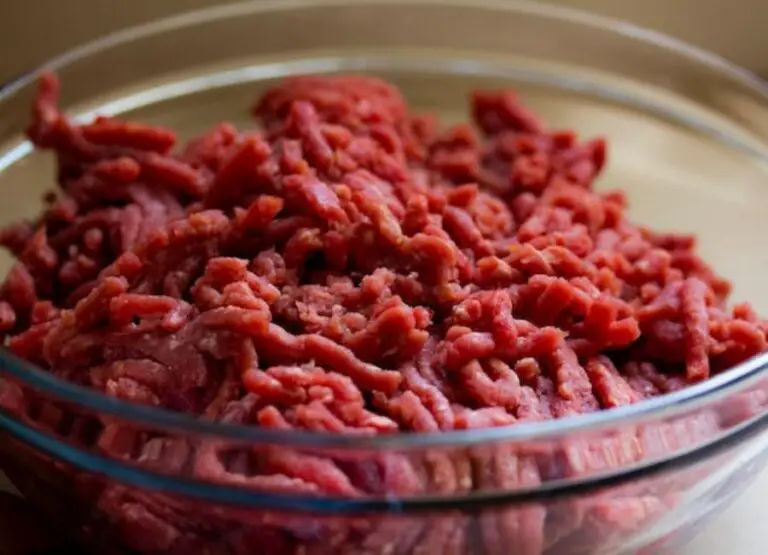Do Smoked Meats Need To Be Refrigerated [Answered]
Do smoked meats need to be refrigerated? Let’s find out together…
Smoking meat has been a popular cooking method for centuries, with its origins tracing back to ancient civilizations.
However, many people wonder if smoked meats need to be refrigerated, and the answer may surprise you.
In this post, we’ll explore the science behind smoked meats and whether or not they require refrigeration to ensure food safety.
Do Smoked Meats Need To Be Refrigerated
The answer to whether smoked meats need to be refrigerated depends on the preparation method and storage conditions.
In general, smoked meats alone are not a method of preservation and should be stored in the refrigerator or freezer to prevent bacterial growth.
The smoked meat should be properly wrapped in foil or plastic wrap and stored in an airtight container or freezer bag.
Cold-smoked meats typically need to be refrigerated and can last for several weeks, while hot-smoked meats can last for up to four days in the refrigerator.
However, smoked meats that are cured or dried, like ham or jerky, can be stored without refrigeration for weeks or months.
It’s always a good idea to follow safe food handling and storage practices to ensure the safety and quality of your food.
How to refrigerate smoked meat
Here are the step-by-step instructions for refrigerating smoked meat:
Smoke the meat: Use a smoker to cook the meat over low heat, which imparts a natural smoke flavor to it.
Let the meat rest: Once the meat is cooked, take it off the heat and let it rest for about 10-15 minutes to allow the juices to redistribute. This will help the meat stay moist and tender.
Cool the meat: After the meat has rested, let it cool to room temperature before placing it in the refrigerator. You can speed up the cooling process by placing the meat in an ice bath or using a cooling rack.
Place the meat in airtight containers: Once the meat has cooled down, place it in airtight containers or wrap it tightly in plastic wrap or aluminum foil. Make sure it is sealed properly to prevent air from entering.
Label and date the meat: Label the container with the type of meat and the date you stored it in the refrigerator. This will help you keep track of its freshness.
Store the meat in the refrigerator: Place the containers with the meat on the top shelf of the refrigerator, where the temperature is the coldest.
Consume or freeze the meat: Smoked meat can last in the refrigerator for up to 4-5 days. If you don’t plan to consume it within that time, freeze the meat to extend its shelf-life.
Factors Affecting the Need for Smoked Meat Refrigeration
There are several factors that affect the need for refrigeration of smoked meat, including:
A. Type of Meat: The type of meat being smoked can affect the need for refrigeration. Some types of meat, such as poultry and ground meat, are more susceptible to bacterial growth, which means they need to be stored at colder temperatures.
B. Smoking Method: The smoking method used can also affect the need for refrigeration. Some smoking methods use lower temperatures, which can result in less well-cooked meat that may spoil faster if not refrigerated.
C. Preservation Techniques: The use of preservation techniques, such as salt or nitrite curing, can also impact the need for refrigeration. These techniques can help to inhibit the growth of bacteria, which means that refrigeration may not be necessary.
D. Storage Conditions: Finally, the storage conditions of the smoked meat can also impact the need for refrigeration. Temperature and humidity can both affect the growth of bacteria, so it is important to ensure that the smoked meat is stored in a cool, dry place to reduce the risk of spoilage.
Risks of Not Refrigerating Smoked Meats
Here are some common risks of not refrigerating smoked meats:
- Pathogenic bacteria growth: Smoked meats that are not refrigerated can become a breeding ground for pathogenic bacteria such as Listeria, Salmonella, and E. coli.
- Formation of toxins: If smoked meats are stored at room temperature, it provides an ideal environment for the formation of harmful toxins that can cause foodborne illnesses.
- Spoilage: Smoked meats can spoil if they are not stored in the proper environment. The growth of bacteria on the surface of the meat can cause it to become slimy and discolored, emitting a foul odor.
- Reduced shelf life: Smoked meats have a limited shelf life if they are not stored at the right temperature. The fats in smoked meats can become rancid, changing the flavor of the meat and reducing its nutritional value.
- Increased risk for foodborne illness: Consuming smoked meats that have not been properly refrigerated can increase the risk of developing foodborne illnesses.
Learn more about long-term meat storage without refrigeration.
Alternatives to Refrigeration of Smoked Meat
If refrigeration is not a viable option for storing smoked meat, there are a few alternatives you can consider:
A. Vacuum Packaging: This method involves placing the smoked meat in an airtight, vacuum-sealed package to prevent the growth of bacteria that require oxygen to survive. The vacuum packaging process eliminates most of the oxygen within the package, thus preventing bacteria from growing.
B. Freezing: Freezing is a method of preserving smoked meat by reducing its temperature to below freezing point, effectively stopping bacterial growth that causes the decomposition of meat. When smoked meat is properly frozen, its quality can last for a long time without having to be refrigerated.
C. Canning: Canning involves covering the smoked meat in brine or sauce, then heating it to high temperatures to kill bacteria that can cause spoilage. The meat is then placed in an airtight jar or can and processed in a pressure canner. The heat processing creates a vacuum seal, preventing air from getting in and bacteria from growing inside.
D. Drying: Drying is the oldest method of food preservation and involves removing moisture from the meat to make it resistant to spoilage and microbial growth. Several methods of drying such as sun-drying and oven drying can be used to preserve smoked meat.
Learn more about how much-smoked meat you should eat.
Precautions to Take When Refrigerating Smoked Meat
Here are some precautions to take when refrigerating smoked meat to ensure food safety:
- Temperature: Keep the refrigerator temperature at or below 40°F (4°C) to slow down the growth of bacteria.
- Storage container: Store smoked meat in a clean, airtight container or wrapping to prevent contamination.
- Storage time: Store smoked meat in the refrigerator for no longer than 4 days, and then either freeze it or consume it.
- Hygiene: Wash your hands thoroughly with soap and warm water before handling smoked meat to prevent cross-contamination.
- Don’t partially cook meat: Don’t partially cook smoked meat and then refrigerate it to finish cooking later. This can allow bacteria to grow in the food.
- Don’t eat undercooked meat: Ensure that all smoked meat is cooked to an internal temperature of 165°F (74°C) to eliminate harmful bacteria.
- Don’t eat contaminated meat: Avoid consuming smoked seafood that hasn’t been stored in a sealed, airtight container before opening.
- Store separately: Store smoked meat away from other perishable foods to avoid cross-contamination.
- Check for signs of spoilage: Check smoked meat for signs of spoilage, such as a sour or off odor, mold, or sliminess, and dispose of it if any signs are present.
Learn more about how long smoked meat sits out.
FAQs
Do all smoked meats need to be refrigerated?
Yes, most smoked meats should be refrigerated to prevent bacterial growth.
Smoking does not kill all bacteria, and refrigeration helps keep the meat fresh and safe to eat.
Can smoked meats be left out at room temperature?
No, smoked meats should not be left out at room temperature for more than 2 hours. After 2 hours, bacteria can begin to grow and cause foodborne illness.
How long can you keep smoked meats in the fridge?
Smoked meats can be kept in the fridge for up to 5–7 days. However, for optimal quality, it’s recommended to consume it within 3–4 days.
Can you freeze smoked meats?
Yes, smoked meats can be frozen for up to 6 months. Make sure to wrap it well to prevent freezer burn and ensure it stays fresh.
How do you know if smoked meat has gone bad?
If the smoked meat has a strange odor, slimy texture, or unusual color, it may be spoiled and should not be consumed. It’s better to be safe than sorry when it comes to food safety.
Learn more about why smoked meat might give you indigestion.
Can smoked meats be eaten cold?
Yes, smoked meats can be eaten cold, but make sure they have been properly refrigerated and are still fresh. Reheating smoked meats is also a safe option if you want to enjoy it warm.
Learn more about the common signs your smoked meat has gone bad.
Conclusion
In conclusion, while smoked meats are flavorful and delicious, they do need to be properly stored in order to prevent the growth of harmful bacteria.
By following basic food safety guidelines and refrigerating your smoked meats, you can enjoy their smoky goodness without putting your health at risk.
So go ahead, fire up that smoker and enjoy some mouth-watering smoked meats, just remember to keep them cool and safe!







